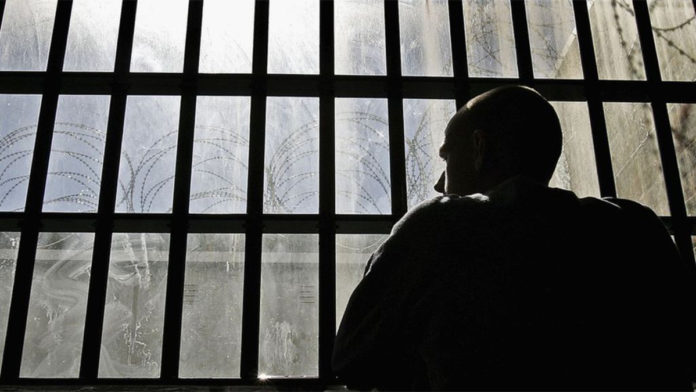After 3 years of bloody conflict, and a mounting humanitarian crisis, the civil war in Yemen shows no signs of slowing down. Since March 2015, the Yemen Civil War has raged at the expense of thousands of lives, with millions of Yemenis facing displacement. Now, as if the mounting civilian death toll wasn’t enough, for the second time in the past year the Associated Press (AP) is reporting widespread torture in secret prisons run by the United Arab Emirates (UAE).
The report describes the horrific practices at the Beir Ahmed prison in Aden, located in southern Yemen. Allegedly fifteen UAE officers—easily distinguished by their clear Emirati accent–ordered recent detainees to line up, undress, and lie down. Once in this position, the officers searched the anal cavities of each of the prisoners for contraband mobile phones. Witnesses say the prisoners screamed and cried during the sodomization. Anyone who attempted to resist was threatened by dogs and beaten until bloody.
Regrettably, this is not the first time the UAE has been accused of torture in Yemen-based prisons. Similar reports have uncovered similar findings in five separate prisons across Yemen, with AP exposing rampant torture in secret prisons across the country in June 2017. The systematic torturing of the Yemeni people has been going on for a full year, with more recent reports of torture having included witness testimony and even written notes smuggled out of prisons detailing the abuse.
One report comes from witnesses who claim Yemeni guards, working under the direction of the UAE, sexually tortured and humiliated prisoners. During detention, guards allegedly raped detainees while other guards filmed. Others had their genitals electrocuted, while some were sexually assaulted with poles. One witness recounted, “They strip you naked, then tie your hands to a steel pole from the right and the left so you are spread open in front of them. Then the sodomizing starts…”
Other accounts stem from drawings, scratched on plastic plates, which were smuggled out of prisons. These graphic accounts drawn by detainees served not only as a means of record-keeping, but as a visual depiction of what they watched transpire behind cell walls. These sketches include a man being electrocuted while hanging naked by chains, a prisoner being kicked on the floor while surrounded by dogs, and other graphic depictions of rape. According to AP, as described by anonymous Yemeni security and military sources, four of the five prisons where sexual torture took place are in Aden.
Any form of sexual abuse is a violation of not only of the human body, but of human rights. International law dictates that torture is illegal; thus, international actors must not falter in their duties to uphold them. This abuse must end and the international community must see to it that it does. The allegations against the UAE and its secret Yemeni prisons amount to some of the most severe violations of humanitarian law in the region. British Shadow Minister for Peace and Disarmament, Fabian Hamilton, has rightfully called for an investigation into these allegations by the Saudi-led coalition, the US, and the UN. For the safety of the people of Yemen, such practices must be abolished.
The past 3 years in Yemen have seen the rapid development of an urgent crisis, and caught in the crosshairs of the harrowing conflict are the Yemeni people. Last year, after two years of civil war, the UN described Yemen as the world’s worst man-made humanitarian crisis. The war has destroyed cities, killed thousands, and displaced millions in what was already the Middle East’s poorest nation. Now on the brink of famine, the population now stares down the ever-growing threat of a cholera epidemic. After a massive naval blockade, the Saudi-led coalition, with the help of the UAE, has lay siege on the most important port in Yemen, Hodeidah.
For the past year, humanitarian relief efforts have been desperately trying to make it through the Saudi blockade to deliver food to the starving Yemeni people. Hodeidah has served a crucial role in relief efforts—the port serves as a lifeline for humanitarian relief and accounts for roughly 80% of all food, water and commercial fuel that 8 million Yemenis depend on for survival. With a siege now underway, the UN and humanitarian officials fear that these vital supplies will now be in peril. The UN has put forward plans to take control of the city; however, the Saudi-led Coalition says it will only accept the absolute and unconditional surrender of the Houthi Rebels. With the largest battle of the war unfolding in the city, it seems that this crisis will get worse before it gets any better.
It has become clear that the situation in Yemen has reached a new dire state. The civil war has raged for three long years, killing thousands and displacing millions in its path. As the increasing threat of cholera and famine weigh upon the people, rampant allegations of torture and sexual abuse throughout the southern portion of the country denote an even more urgent state in the country. The war in Yemen requires immediate international attention. Not only must a ceasefire be brokered, but allegations of torture must be investigated and widespread famine and cholera must be addressed. For the sake of the Yemeni people, the international community must act before it is too late.
Christopher Campbell is an Advocacy Intern at ADHRB





